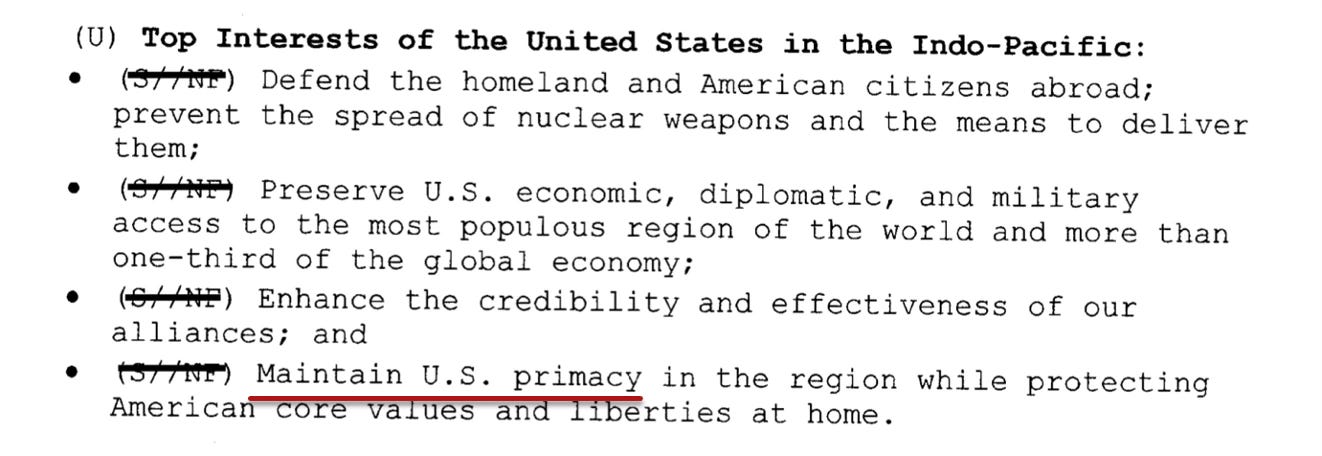How Primacy Became a Dirty Word
Inside the emerging problem of primacy denialism.
During the Biden era, Washington policy wonks started reducing the frequency with which they use the word “primacy.” Some even try to pitch their primacist ideas as a contrast with primacy. I suspect they think this rhetorical maneuver makes it a little bit easier to pursue a foreign policy that has no legitimacy.
But let’s back up.
A couple months ago, I was speaking to a friend in Australia who was part of a public debate with Mike Green, a Bush-era political appointee with a track record of venerating old-school naval imperialists. For as long as I’ve been aware of him, Green has always been an advocate of primacy.1 It’s kind of a known thing, which was why my friend debating him was taken aback when Green denied that the US has a primacist approach to the world even though he was explicitly speaking in its language.
Weird to advocate for primacy but deny the label, no?
Then I got to thinking.



